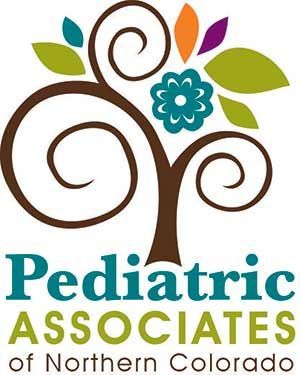Bronchiolitis is a common respiratory illness among infants. One of its symptoms is trouble breathing, which can be scary for parents and young children. Read on for more information from the American Academy of Pediatrics about bronchiolitis, its causes, signs and symptoms, how to treat it, and how to prevent it.
What is bronchiolitis?
Bronchiolitis is an infection that causes the small breathing tubes of the lungs (bronchioles) to swell. This blocks airflow through the lungs, making it hard to breathe. It occurs most often in infants because their airways are smaller and more easily blocked than in older children. Bronchiolitis is not the same as bronchitis, which is an infection of the larger, more central airways that typically causes problems in adults.
What causes bronchiolitis?
Bronchiolitis is caused by one of several respiratory viruses such as influenza, respiratory syncytial virus (RSV), parainfluenza, and human metapneumovirus. Other viruses can also cause bronchiolitis.
Infants with RSV infection are more likely to get bronchiolitis with wheezing and difficulty breathing. Most adults and many older children with RSV infection only get a cold. RSV is spread by contact with an infected person's mucus or saliva (respiratory droplets produced during coughing or wheezing). It often spreads through families and child care centers. (See "How can you prevent your baby from getting bronchiolitis?")
What are the signs and symptoms of bronchiolitis?
Bronchiolitis often starts with signs of a cold, such as a runny nose, mild cough, and fever. After 1 or 2 days, the cough may get worse and an infant will begin to breathe faster. Your child may become dehydrated if he cannot comfortably drink fluids.
If your child shows any signs of troubled breathing or dehydration, call your child's doctor.
Signs of troubled breathing
-
He may widen his nostrils and squeeze the muscles under his rib cage to try to get more air into and out of his lungs.
-
When he breathes, he may grunt and tighten his stomach muscles.
-
He will make a high-pitched whistling sound, called a wheeze, when he breathes out.
-
He may have trouble drinking because he may have trouble sucking and swallowing.
-
If it gets very hard for him to breathe, you may notice a bluish tint around his lips and fingertips. This tells you his airways are so blocked that there is not enough oxygen getting into his blood.
Signs of dehydration
-
Drinking less than normal
-
Dry mouth
-
Crying without tears
-
Urinating less often than normal
Can bronchiolitis be treated at home?
There is no specific treatment for RSV or other viruses that cause bronchiolitis. Antibiotics are not helpful because they treat illnesses caused by bacteria, not viruses. However, you can try to ease your child's symptoms.
To relieve a stuffy nose
-
Thin the mucus using saline nose drops recommended by your child's doctor. Never use nonprescription nose drops that contain medicine.
-
Clear your baby's nose with a suction bulb.Squeeze the bulb first. Gently put the rubber tip into one nostril, and slowly release the bulb. This suction will draw the clogged mucus out of the nose. This works best when your baby is younger than 6 months.
To relieve fever
Give your baby acetaminophen. (Follow the recommended dosage for your baby's age.) Do not give your baby aspirin because it has been associated with Reye syndrome, a disease that affects the liver and brain. Check with your child's doctor first before giving any other cold medicines.
To prevent dehydration
Make sure your baby drinks lots of fluid. She may want clear liquids rather than milk or formula. She may feed more slowly or not feel like eating because she is having trouble breathing.
Bronchiolitis and children with severe chronic illness
Bronchiolitis may cause more severe illness in children who have a chronic illness. If you think your child has bronchiolitis and she has any of the following conditions, call her doctor:
-
Cystic fibrosis
-
Congenital heart disease
-
Chronic lung disease (seen in some infants who were on breathing machines or respirators as newborns)
-
Immune deficiency disease (eg, acquired immunodeficiency syndrome [AIDS])
-
Organ or bone marrow transplant
-
A cancer for which she is receiving chemotherapy
How will your child's doctor treat bronchiolitis?
Your child's doctor will evaluate your child and advise you on nasal suctioning, fever control, and observation, as well as when to call back.
Some children with bronchiolitis need to be treated in a hospital for breathing problems or dehydration. Breathing problems may need to be treated with oxygen and medicine. Dehydration is treated with a special liquid diet or intravenous (IV) fluids.
In very rare cases when these treatments aren't working, an infant might have to be put on a respirator. This is usually only temporary until the infection is gone.
How can you prevent your baby from getting bronchiolitis?
The best steps you can follow to reduce the risk that your baby becomes infected with RSV or other viruses that cause bronchiolitis include
-
Make sure everyone washes their hands before touching your baby.
-
Keep your baby away from anyone who has a cold, fever, or runny nose.
-
Avoid sharing eating utensils and drinking cups with anyone who has a cold, fever, or runny nose.
If you have questions about the treatment of bronchiolitis, call your child's doctor.
The information contained in this publication should not be used as a substitute for the medical care and advice of your pediatrician. There may be variations in treatment that your pediatrician may recommend based on individual facts and circumstances.
© 2019 American Academy of Pediatrics. All rights reserved. AAP Feed run on: 4/3/2025 Article information last modified on: 5/14/2024

